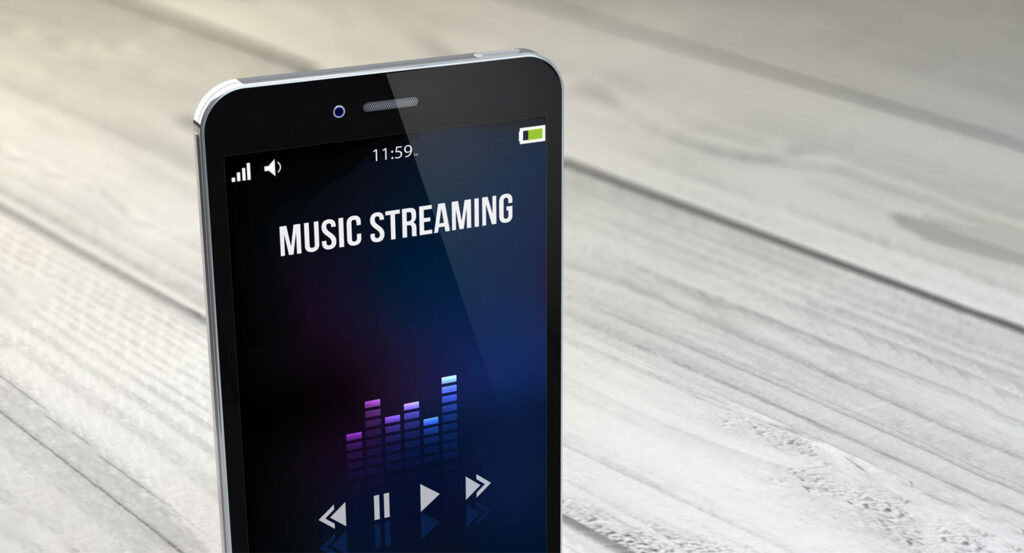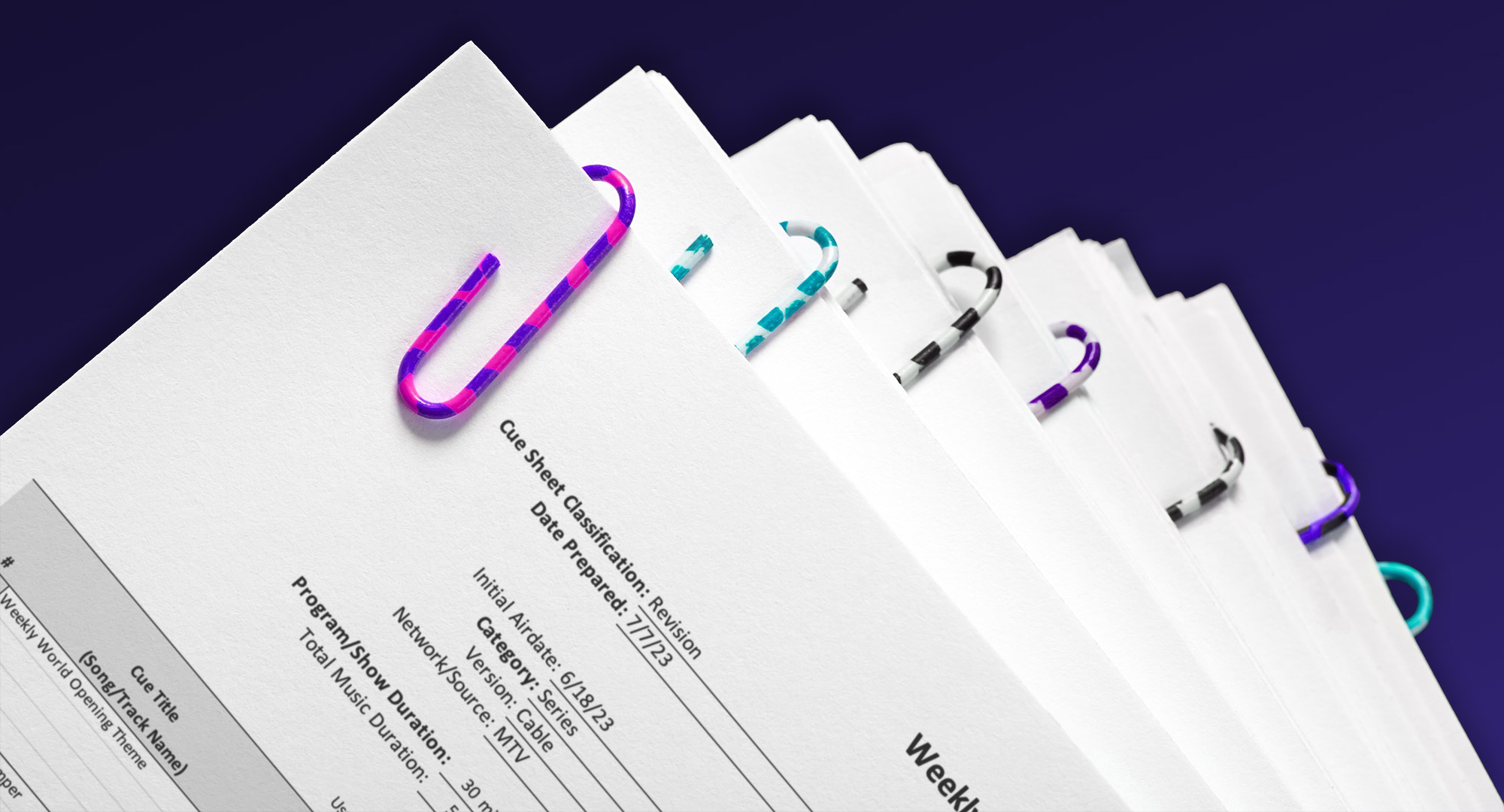Are you getting paid what you deserve for your music? It’s crucial to understand your rights and royalties, and in this article, Mary Kate Jiménez-Wall, President of Emperia Records, breaks down the different types of royalties and gives tips on how to keep track of your data to maximize your earnings. Being organized and following a few simple strategies can increase your income over time. Read on and start earning what you’re worth!
1. Know your rights & royalties
Music contains two copyrights: the sound recording and the composition itself (music and lyrics). Both of these aspects earn royalties across different rights. Here’s a summary of the most commonly exploited right types.
Mechanical Rights
Reproducing a song in a sound recording, digital or physical formats; this includes certain types of internet streaming.
- Mechanical Royalties: Paid to the composition copyright holder for any recorded versions of the song. These are payable from the first copy sold. The current U.S. statutory rate per copy distributed is 9.1¢ for songs under five minutes long, 1.75¢ per minute or fraction thereof for songs five minutes or longer. Other territories outside the U.S. pay mechanical royalties in varying ways, for instance, on a percentage basis.
- Master Royalties/Artist Royalties: Paid to the recording copyright holder, after recouping any recording expenses. Rates for parties involved vary depending on the recording contract in question, between an artist and label, composer and studio, etc.
Synchronization Rights
Combining a song with visual images, as in film, video games, TV, or advertising.
- Sync Royalties: Payable on both the composition and recording side, though there is no standard rate. Control of and rates for sync rights are often part of the main contract between composers and the production company or studio.
- Microsync Royalties: Apply on video sharing platforms like YouTube. This can be a bit of a logistical minefield for music in media, especially video games. Content ID and similar services are primarily open to larger publishers or catalogs only for this reason.
Performance Rights
The right to publicly perform a song, including radio, TV, certain internet streaming, live performances, and background music played at various venues.
- Performance Royalties: Due to the composition copyright holder. These are split into two halves: the writer’s share and the publisher’s share. While most other royalties are paid out to a publisher (who then pays out your portion), the writer’s share of performance royalties goes directly to the writer(s).
Neighboring Rights
Public performance rights on the recording side. The U.S. does not recognize neighboring rights for terrestrial radio or public venues but does for internet radio streaming on sites like Pandora or Sirius XM.
- Neighboring Rights Royalties: Paid out to both performing artists and recording owners (usually a record label), similar to the writer/publisher split on the composition side.
2. Organize your data
Now that you know what can be collected, time to figure out how it applies to your music.
Note what you wrote
Keep track of your projects, especially if there are multiple composers and writer splits involved. Do you own the sound recordings, or are you credited as an artist on them? You’re eligible for those neighboring royalties.
Maintain an up-to-date list of your works with composer/publisher/recording information—it will be invaluable for seeking out royalties. A private ReelCrafter reel with track notes is an easy way to create this list.
Read your contracts
Keep a record of who owns what and how you can use it. Void of any agreements or contracts, composers generally keep the rights to their creations. Even with buyouts or work-for-hire, composers are often still entitled to the writer’s share of performance royalties, unless their contracts specify otherwise.
Disclaimer: This article should not be taken as legal advice, and you should seek legal counsel in cases where there is confusion.
Register your catalog
Here are the top priority organizations where you and your songs should be registered.
- Performance Royalties: Your local PRO – ASCAP and BMI are the largest in the U.S. This is especially important for TV cue sheets.
- Mechanical Royalties: Your local mechanical rights organization – Harry Fox Agency (HFA) and Music Reports, Inc. (MRI) are some of the largest in the U.S. MCPS or AMCOS are other examples in the UK and Australia, respectively.
- Recording Data/Neighboring Rights Royalties: SoundExchange is your best option.
MAKE SURE YOU’RE NOT IGNORING ANY COMMUNICATION THAT COULD LEAD TO YOU GETTING PAID!
3. Don’t throw out your mail
Often these companies that collect your royalties will come across your music being used and seek you out to try and pay you.
Check your snail mail
Make sure you’re not ignoring any communication that could lead to you getting paid! A big example: mechanical collection societies or other licensing agencies will send out Notices of Intention (NOIs) in the mail when your music is being recorded. Often a quick google search or email to a company can confirm whether you should follow up.
Watch your inbox
If they can’t find your information on the PROs or other society databases, companies may send cold emails to ascertain proper composer and publisher information for songs.
4. Follow up
- Got an email or letter from Music Reports or other companies looking for your music data? Send them that catalog of works you’ve got handy!
- Moved addresses for your business? Update that on your PRO profiles so nothing gets lost. Stay up to date on your tax and payment information, and have it ready when companies request it.
- Got updated recording metadata, especially ISRCs? Go back and add that information to your catalog sources/registrations, so that collection agencies can link your compositions to those recordings and pay accordingly.
- Above all, make sure the production company or studio you’re working with has someone in charge of managing music registrations, or see if you can do it yourself. TV studios will submit their cue sheets, but if your name is listed incorrectly, you may not get those checks!
With these steps in place, you should see increased income from your music over time.
Want to learn more about sync licensing?
Join our email list to get a copy of our guide to PREPPING YOUR TRACKS FOR SUBMISSION—sign up below.
Check out the rest of our music licensing series:
How sync licensing works
Choosing the right vehicle for licensing your music
Everything you need to know about cue sheets and music royalties




